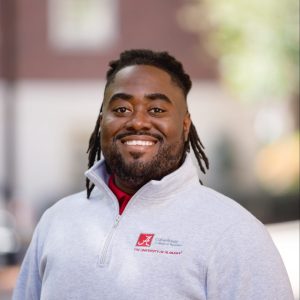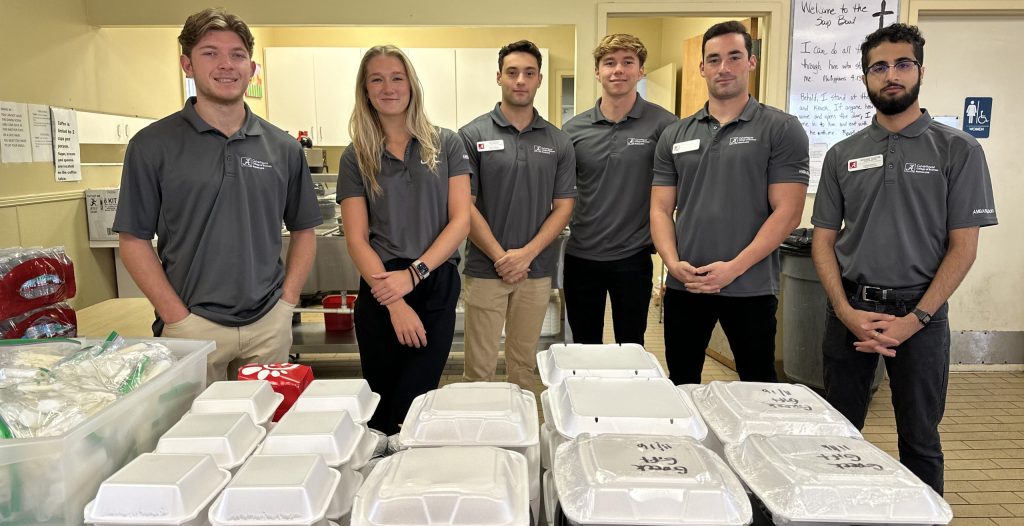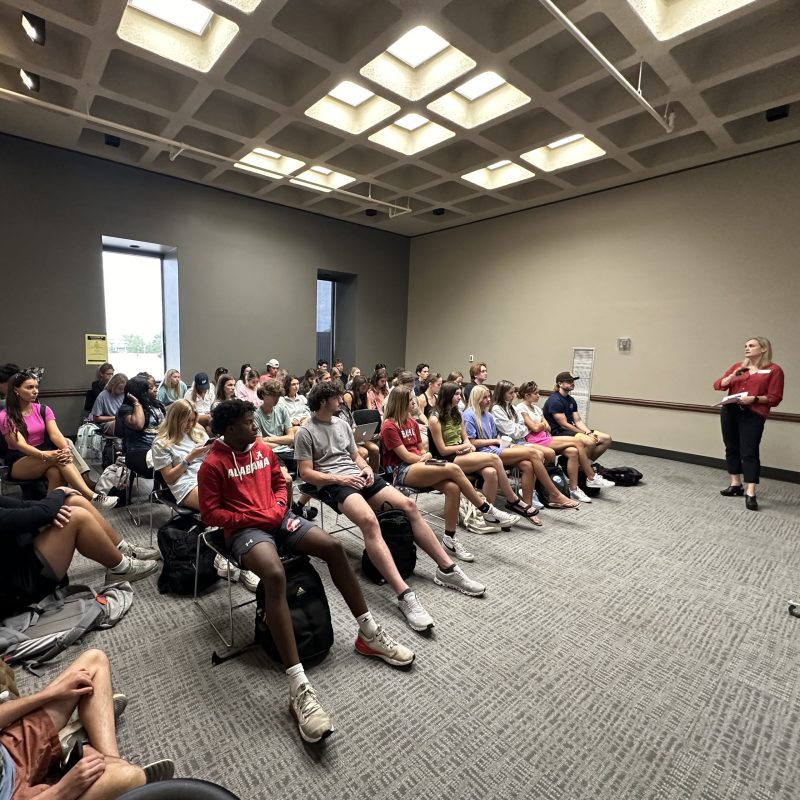“I always tell my students that if you’re in an argument on Sunday evening and that argument is not resolved on Sunday evening, chances are you’re going to bring those emotions and feelings into work the next day,” said Culverhouse College of Business Assistant Director of Professional Development and Engagement Demitrius Barksdale. “Because we’re human beings, right? There’s no way of separating that.”

As a trained mental health counselor, Barksdale is attuned to the ways that work and life overlap. And as director of the Business LEAD program, it is his job to ensure that Culverhouse undergraduates emerge with the soft skills to not only thrive at work, but to design a healthy work and life balance.
A few years prior to the COVID-19 pandemic, business leaders began to notice a skills gap in recent b-school graduates. The graduates were disengaged. They lacked soft skills like the ability to work effectively in — and lead — teams, and possessed only shallow knowledge of key issues like DEI and global cultural awareness. So Associate Dean for Undergraduate and International Programs Dr. David Mothersbaugh and Director of Career Management Susan Cowles started the LEAD program to address that gap. And initially, it only focused on professional development.
About a year ago, though, just after Barksdale started in his current role, he noticed that students were struggling with personal development issues as well as professional. In response, he launched the LEADwell program, which focuses on mental and emotional wellness, financial wellness, and physical wellness. Since many companies have wellness initiatives, LEADwell opens opportunities to network with professionals involved in those programs, and invites them to speak to Culverhouse students.
“We now have greater campus collaboration and partnerships with campus partners like the Counseling Center, Health Promotion and Wellness, and the Campus Recreation Center,” Barksdale said. “And then also, community leaders and community businesses. People who own wellness type businesses in the community come and do programs with us too.”
There is an academic component to LEAD: Culverhouse undergraduate students are required to complete a professional development course called “Exploring Your Path.” Then, students are to identify topics or soft skill development areas that interest them, and seek out further guidance, training, and information by coming to co-curricular opportunities that are planned around competencies.
Recently, though, LEAD has launched another component: LEAD Coaching. Former Culverhouse development officer Keith Norton and Lauren Ward Wilson, a Meta alumna, offer executive-style coaching, done individually or in small groups. “They’re personable, very professional,” Barksdale said. “Extremely knowledgeable of industry, but I think what really makes Keith and Lauren stand out is their willingness to be relatable and vulnerable with our students.”
Finally, LEAD is venturing into societal impact: LEAD intern Nate Owens heads the LEAD Societal Impact Initiative. This semester, the initiative is helping with Beat Auburn, Beat Hunger, which collects food for the West Alabama Food Bank; sponsoring a suit drive to donate professional clothing to the Crimson Closet, for loan to students interviewing for jobs, and partnering with various organizations within the community to offer community service opportunities for students.
And all of this seems to be working.
Culverhouse senior Matthew Flenniken said, “LEAD has truly been a transformative experience for me. It’s given me priceless leadership abilities and a deep grasp of effective collaboration. Beyond academics, it’s ignited a genuine enthusiasm in me for personal and professional development and helped me realize the importance of implementing it into my everyday life.”
“My personal health and wellness are critical when developing myself fully in the business world,” said LEAD Ambassador Isaiah Amantine. “If my mind and body are not working together, I am limited to what I can do. When they are working in one accord, there is unlimited potential as to what I can achieve.”
LEAD is growing rapidly. For instance, when he started in his role, Barksdale was one of a team of five; within a year, it had grown to a team of twelve. He would like to keep that momentum. So going forward, Barksdale hopes to hire more students workers as assistants and LEAD Ambassadors, as well as hire more professional staff. He also wants to collaborate more with the Tuscaloosa community, campus partners and industry leaders within the state of Alabama, all efforts that could lead to retaining more graduates locally.
“The whole goal of LEAD is for students to realize that these soft skills are important to your personal and professional life,” Barksdale said. “And these are transferable skills. So we want our students to not only lead personally, in their own lives, but also lead professionally, to lead academically in the classroom.”


